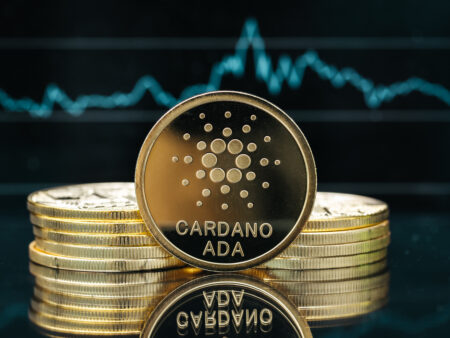In the dynamic realm of cryptocurrency, not even the best-laid plans are immune to market volatility. Cardano founder, Charles Hoskinson, recently found himself navigating through a storm of criticism as ADA, the native token of the Cardano blockchain, faced a downtrend in price following the Chang hard fork. Amidst the sector’s ever-present turbulence, the Cardano community was taken aback when ADA’s price trajectory diverged negatively from the widespread gains seen across the crypto landscape.
Bitcoin advocate Cory Bates directed a pointed critique at Cardano’s ADA following its lackluster price performance. Bates highlighted that while other tokens experienced boosts, ADA took the opposite path. Data over the last 24 hours indicated a 1.30% drop, while the past week saw an 11.83% slide, taking ADA to $0.3169. This decline followed the Chang hard fork, an update referring to a common phenomenon in the crypto industry known as a “sell the news” event. Often, traders anticipate rallies leading up to major developments, only to reverse their positions and cash out once the update is implemented, precipitating a price drop. Notably, this cycle was accentuated by crypto whales dismantling their substantial holdings of ADA.
In response to the price woes, Hoskinson went into defense by discussing the bootstrap phase for establishing Cardano’s governance system. He spotlighted the Cardano Improvement Proposal (CIP) 1694, which was set into motion following the Chang hard fork, marking a crucial step in strengthening the network’s governance infrastructure.
Moreover, another significant update, the Chang+1 hard fork, is already on the horizon, slated to occur within the next 90 days. This next phase is expected to enhance governance mechanisms within the Cardano ecosystem, particularly by catalyzing the activation of decentralized representatives. With Chang+1, Cardano aims to progress towards what Hoskinson and his team call a “full Cardano government,” an optimized system for governance and decision-making within the network.
While ADA’s price reactions may tell one story, the underlying architectural updates suggest a long-term vision far beyond the immediacy of market sentiment. The forthcoming hard fork and its focus on governance align with the broader aim of enabling a more decentralized and robust framework for Cardano’s future. As the development of blockchain technology continues to intersect with the principles of democracy and fair representation, it’s clear that the ecosystem’s evolution goes well beyond the ebb and flow of token prices, inviting stakeholders to focus on the bigger picture of innovation and governance in the blockchain space.










